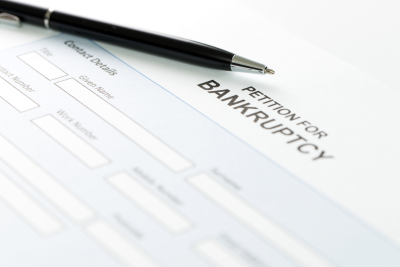2 min read
Are Personal Injury Settlement Awards Considered "Disposable Income" in Bankruptcy?
Joe Whitcomb
:
January 06, 2024

In a bankruptcy case, Pamela D. Martin found herself at the center of a legal battle over her personal injury settlement proceeds. The case began when Martin filed for Chapter 13 bankruptcy in October 2022, with her bankruptcy plan being confirmed in February 2023. It was not until May 2023 that Martin filed a motion to approve the settlement of her prepetition personal injury claim.
The Definition of "Disposable Income" in Bankruptcy Proceedings
Jennifer K. Cruseturner, the Chapter 13 trustee, was who opposed Martin's motion. Cruseturner argued that the settlement proceeds should be categorized as "disposable income" and used to repay creditors. It was up to the Bankruptcy Court, presided over by Judge Denise E. Barnett, to make a ruling. After examination, Judge Barnett sided with Martin, stating that the settlement proceeds were, in fact, assets and not "disposable income." The court based this decision on two crucial factors: the proceeds were not received on a regular basis and Congress did not explicitly include personal injury proceeds in the definition of "disposable income" within the Bankruptcy Code.
The ruling highlights the importance the definition of "disposable income" under the Bankruptcy Abuse Prevention and Consumer Protection Act (BAPCPA). The BAPCPA emphasizes the "best interest of creditors" standard, which ensures that unsecured creditors receive the maximum amount they would in a Chapter 7 liquidation. Some individual states may provide additional guidelines and regulations regarding personal injury settlement proceeds in bankruptcy cases.
Precedent and Context: Court Cases and Personal Injury Settlements in Bankruptcy Proceedings
Throughout the course of this case, references were made to various sections of the U.S. Bankruptcy Code and Tennessee state law. Additionally, several court cases were cited to provide context and precedent for the issue at hand. For instance, the case of Schwab v. Reilly established that the value of an exemption—rather than the specific property—is what is exempt from the bankruptcy estate.
Proponents of including personal injury settlement proceeds as "disposable income" argue that these funds should be subject to repayment to creditors. However, an opposing viewpoint asserts that personal injury settlement proceeds are not considered "gross income" for tax purposes and references the case of In re Daniels, which concluded that if Congress intended to include personal injury proceeds within the "disposable income" definition, they would have explicitly done so.
Court's Decision: Motion Granted to Approve Martin's Settlement
The court's jurisdiction and venue are clearly established. The importance of exemptions in bankruptcy is reiterated, with specific emphasis on Tennessee state law's allowance of a $7,500 exemption for personal injury settlement proceeds. Bankruptcy Rule 4003(b)(1) is referenced, setting a deadline for objections to claims of exemption, and citing the case of Taylor v. Freeland & Kronz, which highlights the importance of adhering to the deadline. The ruling ultimately supports Martin's claim to her exempt personal injury settlement proceeds. The court grants her motion to approve the settlement, providing her with a lifeline in the bankruptcy process.


